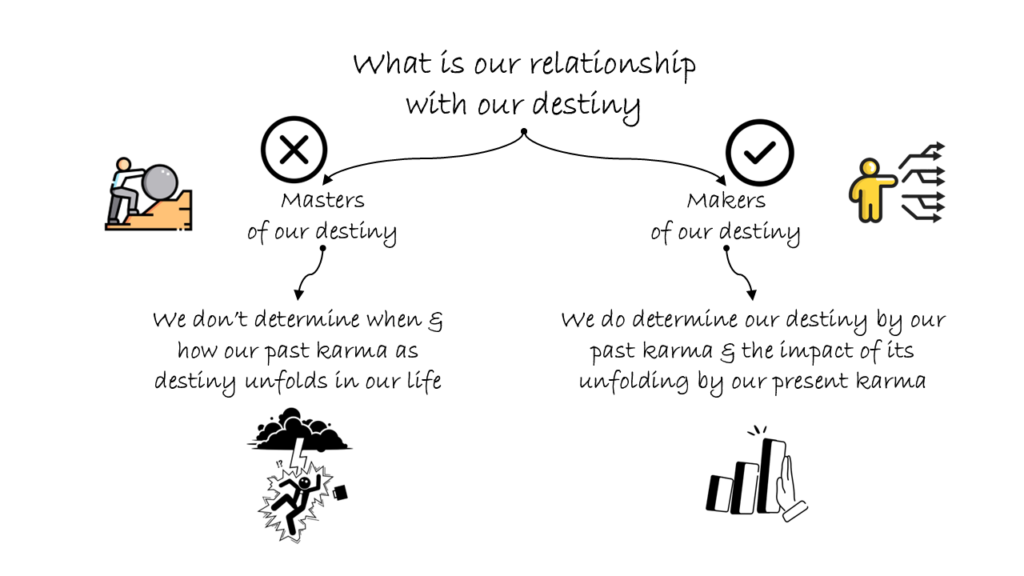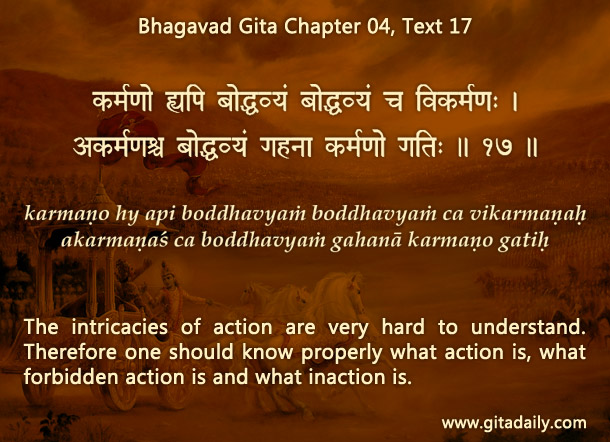
Destiny is often a generic term used to refer to factors beyond our control, especially when such factors shape or determine the outcomes in our lives. For instance, when something unfortunate happens, people often say, “It was destined to happen,” as a way of accepting the inevitability of the event.
However, when does this acceptance of destiny turn into a justification or rationalization for avoiding remedial actions? For example, if a non-smoker gets cancer despite living a healthy life, this can be attributed to destiny. But if a smoker develops lung cancer, is that destiny, or is it the result of their smoking habit? This distinction highlights the need to carefully understand our relationship with destiny.
Destiny: A reflection of our actions
Destiny is not an arbitrary decree from a distant divinity who whimsically favors or opposes us. Instead, it is the accumulated stockpile of our past actions (karma), unfolding over time. It brings us situations—sometimes better than we deserve, sometimes worse—based on the complexities of our karmic accounts.
For example, consider a person traveling for work or tourism who finds themselves in a region hit by a sudden disease outbreak. If their destiny is unfavorable, they may fall ill and face isolation. Conversely, if their destiny is favorable, they might recover quickly due to robust medical support and strong familial care.
The role of present actions
While destiny influences circumstances, our present actions significantly affect outcomes. For instance:
Good health and fitness: If someone has maintained good health through regular exercise, the impact of a karmic illness may be minimized.
Negligence and indulgence: If someone has neglected their health or indulged excessively, the same illness might have a far more debilitating effect.
Thus, our present actions both shape our future destiny and determine how severely we are impacted by our past karma.
Balancing acceptance and responsibility
Recognizing that we are the makers of our destiny—having shaped our karmic stockpile through past actions—can be both reassuring and empowering. At the same time, acknowledging that we are not the masters of destiny helps us accept situations gracefully when they unfold contrary to our desires.
The Bhagavad-Gita (4.17) highlights the complexity of karma’s workings, stating that its unfolding through destiny is difficult to comprehend. This calls for a balanced approach: accepting the unavoidable and taking responsibility for addressing the avoidable.
Summary:
- Destiny refers to the accumulated stockpile of our past karma, unfolding through the course of our present life.
- While we cannot control how destiny unfolds, we are its makers through our past actions and can influence its impact through present actions.
- Balancing acceptance with responsibility allows us to navigate life’s uncertainties more judiciously.
Think it over:
- Reflect on a situation where understanding destiny helped you accept an unexpected outcome.
- Can you recall an instance where destiny was used as a justification for avoidable trouble caused by a lack of responsible action?
- How can the understanding that you are the maker, but not the master, of your destiny help you approach challenges in your life with greater wisdom?
***
04.17 The intricacies of action are very hard to understand. Therefore one should know properly what action is, what forbidden action is and what inaction is.


Leave A Comment